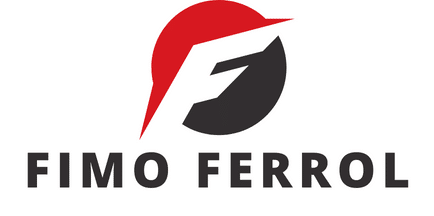What Are the Best Techniques to Discourage Destructive Chewing in Puppies?

Managing a puppy’s transition from infancy to full-grown dog status can be a challenging task, especially when it comes to the issue of destructive chewing. Puppies have a natural instinct to chew on things as they start teething, explore their environment, and learn about the world around them. But, when their choice of chew toys extends to furniture, shoes and other household items, it can quickly become a matter of concern for pet owners.
Why Do Puppies Chew on Things?
Understanding the reasons behind a puppy’s destructive chewing behavior can go a long way in managing it effectively. Just like human babies, puppies use their mouths to explore their surroundings. Chewing provides them sensory information about the texture, taste, and smell of different objects.
Cela peut vous intéresser : What Are the Best Strategies for Socializing a Shy Rescue Cat?
In addition, puppies go through a teething process in which their baby teeth fall out and adult teeth grow in. This can cause discomfort and chewing helps to relieve their sore gums. Furthermore, chewing also serves as a form of play or entertainment for puppies. Boredom or lack of physical and mental stimulation can lead to destructive chewing. Lastly, some puppies may chew out of anxiety or stress.
Choosing the Right Chew Toys for Your Puppy
One of the primary ways to manage your puppy’s chewing behavior is through the provision of suitable chew toys. Chewing is a natural and necessary behavior for puppies, but you can guide what they chew on.
Dans le meme genre : How to Select an Appropriate and Safe Litter Material for a Litter-Trained Rabbit?
Not all chew toys are created equal. Some toys may be too hard and could damage your puppy’s teeth, while others may be too soft and could be torn apart, posing a choking hazard. Look for toys that are designed for puppies, taking into account their size and breed.
Additionally, consider rotating the toys to keep your puppy interested. If you give them all the toys at once, they may become bored with them. But if you introduce a "new" toy every few days, it will keep the chewing focused on these items.
Training Puppies Not to Chew on Inappropriate Items
Training plays a crucial role in discouraging destructive chewing. When it comes to training puppies, patience, consistency, and positive reinforcement are key.
When you spot your puppy chewing on something inappropriate, guide them away from the item and redirect their attention to a chew toy. Once they start chewing on the toy, praise them and give them a treat. This will help them understand what they are allowed to chew on.
Never punish your puppy for chewing on inappropriate items. This might create fear and anxiety, potentially making the problem worse. Instead, puppy-proof your home by keeping valuable items out of their reach and providing plenty of chew toys.
Addressing Anxiety-Driven Chewing
For some puppies, destructive chewing is a sign of separation anxiety or other fear-based issues. If your puppy only chews when you’re not home, or if they exhibit other signs of anxiety such as excessive barking or pacing, it’s important to address the underlying issue.
Creating a safe and secure environment can help alleviate anxiety. This might involve providing a crate or a specific area of your home where your puppy feels safe. Having a familiar scent, such as a piece of your clothing, can also be comforting for your puppy.
Additionally, consider seeking the advice of a pet behaviorist or your vet. They can provide strategies or treatments to help manage your puppy’s anxiety.
Maintaining a Healthy Diet
Lastly, a balanced diet is vital for managing your puppy’s chewing behavior. Puppies have a lot of energy, and they need a diet that will provide them the nutrients they need to grow. A diet that lacks essential nutrients or isn’t filling enough might lead to your puppy chewing on inappropriate items.
Consult with your vet to determine the best diet for your puppy, taking into account their breed, size, and age. You might also supplement their diet with specific chew treats that are designed to promote good dental health.
Remember, destructive chewing is a common behavior in puppies and it’s usually a phase that they will grow out of. With patience, understanding, and the right strategies, you can guide your puppy through this stage and keep your household items safe from their curious and eager mouths.
The Role of Exercise and Mental Stimulation
Exercise and mental stimulation are often overlooked but significant aspects of managing a puppy’s destructive chewing behavior. Puppies, especially the larger breeds, are filled with boundless energy. This energy needs an outlet, and if it doesn’t find a healthy one, it’s likely to manifest in the form of destructive behavior, including excessive chewing.
Engaging your puppy in regular exercise is a healthy way to expend their energy. This could be in the form of walks, playtime in the yard, or even doggy daycare. Remember, a tired dog is a good dog. When your puppy is tired, they are less likely to participate in destructive behavior like chewing on your favorite pair of shoes or the corner of your sofa.
Furthermore, mental stimulation is just as important as physical exercise. Puppies are learning about the world, and they need activities to keep their brain engaged. Puzzle toys, training sessions, or simple games like ‘find the toy’ can provide your puppy with the mental stimulation they crave.
It’s also essential to remember that each dog breed is different and requires varying levels of physical activity and mental stimulation. For instance, working breeds like Border Collies or Australian Shepherds may require more mental stimulation than other breeds.
Creating a Puppy-Friendly Environment
Creating a puppy-friendly environment is another method to discourage destructive chewing. This involves making your home safe and engaging for your puppy.
To start off, puppy-proofing your home is a good idea. Keep harmful substances, electric cords, and valuable items out of your puppy’s reach. Next, create an environment that’s stimulating for your puppy. This could involve having a variety of chew toys available, putting up dog gates to create a safe play area, and setting up a comfortable sleeping area.
Additionally, be mindful of your puppy’s perspective. Things that you might not consider interesting could be fascinating to a curious puppy. Everyday household items, like shoes or remote controls, can become appealing chew objects simply because they smell like you.
Consistently supervising your puppy is also crucial. By keeping an eye on your puppy, you can prevent them from chewing on inappropriate items and promptly redirect them towards acceptable chew toys.
Remember, creating a puppy-friendly environment doesn’t mean letting your puppy do whatever they want. It’s about striking a balance between freedom and boundaries, allowing your puppy to explore and learn while ensuring they’re safe and well-behaved.
Conclusion
Dealing with a dog’s destructive chewing behavior can be challenging, but understanding the reasons behind this habit and implementing effective strategies can make things easier. Whether it’s through providing suitable chew toys, ensuring a balanced diet, offering ample exercise and mental stimulation, or creating a puppy-friendly environment, you can guide your puppy towards healthier chewing habits.
Remember that every puppy is unique, and what works for one might not work for another. Don’t hesitate to seek advice from professionals, like a vet or a pet behaviorist, if you’re struggling with your puppy’s chewing behavior.
Above all, patience and understanding are key. Your puppy isn’t chewing out of spite or malice. They’re learning, and they need your guidance. With time, consistency, and love, your puppy will eventually outgrow their destructive chewing phase, and these early challenges will become distant memories. In the end, the joys of puppyhood far outweigh the difficulties. So, hold on, the best is yet to come.
